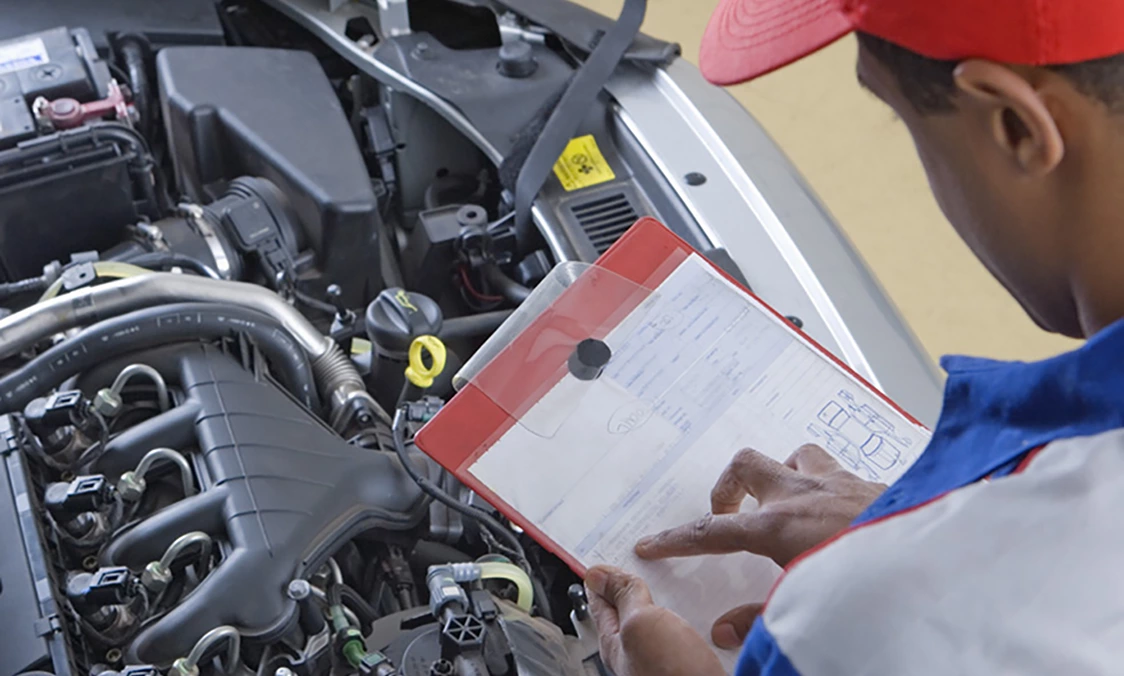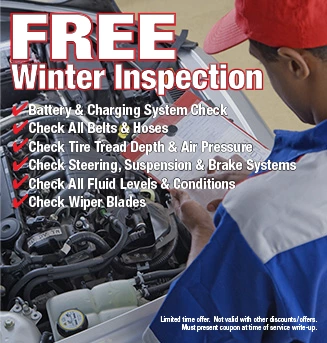Power Steering Service in Troy
June 7, 2016
Most Troy drivers are too young to remember life before power steering - cranking those great big steering wheels! It was a pretty good workout. Now power steering is standard. Let's look at how it works. The heart of any power steering system is its pump. The pump pressurizes the power steering fluid that provides assist for steering. Most pumps are driven by a belt that is run by the engine; a few are electrically powered. A high-pressure hose passes fluid from the pump to the steering gear. A low pressure hose returns the fluid back to the pump.
These hoses can develop leaks, so it is a good idea for Troy drivers to have them inspected at every oil change. Low fluid can damage the power steering pump. That is why power steering fluid level is on the checklist for a full-service oil change. The fluid needs to be compatible with the hoses and seals, so check your owner's manual for the right type - or just ask your friendly and knowledgeable pros at Auto Lab Troy in Troy.
The fluid cleans, cools and lubricates the power steering system. It breaks down as the years go by and collects unwanted moisture, so Troy drivers need to replace it from time to time. Many vehicle manufacturers specify power steering service intervals. Unfortunately, this important service is sometimes left off the car maintenance schedule for many of us. So, when in doubt, every 25,000 miles/40,000 km or two years is a good fallback. Your technician at Auto Lab Troy will use a detergent to clean the system, flush out the old fluid and replace it with the good stuff.
Here are some warning signs of trouble with your power steering: It's harder to turn the wheel, there's erratic power assist, you hear loud whining coming from the pump (which may be difficult to hear over the loud whining coming from the backseat), you have to top-off the fluid frequently, or you hear squealing belts. Remember to never hold the steering wheel to the far right or left for more than a few seconds at a time. That will wear out your power steering pump quickly.
Other steering components can be bent or damaged from wear or hard knocks: ball-joint, idler-arm, steering-gear, steering-knuckle and tie rod to name a few. Warning signs here are steering play, wandering, uneven tire wear and an off-center steering wheel. An annual alignment check at Auto Lab Troy in Troy will reveal bent or damaged steering components.
Most SUV's, pick-ups and rear-wheel-drive cars need regular front-wheel-bearing service.
The bearings should be cleaned and inspected. If they are excessively worn, they need to be replaced. The bearings are then repacked in clean grease. The team at Auto Lab Troy also recommends the wheel-seal be replaced when the bearings are serviced. Like everything else, check your owners' manual maintenance schedule. It's usually required around every two years or 40,000 miles/64,000 km. If you drive through water in the Troy area, the bearings will need service more often.
Auto Lab Troy
2790 West Maple Rd.
Troy, Michigan 48084
(248) 643-7690
Need Service?
More articles from Auto Lab Troy

Don?t Be Hosed (Radiator Hose Replacement)
January 18, 2026
If you are like most drivers, you dont worry too much about what shape your radiator hoses are in. But they are a vital part of your coolant system, helping carry engine coolant from the hot engine to where it is cooled off in the radiator. When the cooling system has a problem, you will likel... More

Smooth Operator (Shock Absorbers)
January 11, 2026
When you are comfortably headed down the road, you may not realize how many of the imperfections in the driving surface are being smoothed out, so you hardly feel most of them. You can thank your shock absorbers for a lot of that comfort, and its important to make sure you keep your shocks in go... More

What?s That Yellow Squiggly Line Anyway? (What Warning Lights Mean)
January 4, 2026
You may have noticed when you start your vehicle, youll see several symbols light up on the dash. Theyre different colors and shapes, and sometimes its hard to figure out what each of those symbols mean. They are warning lights and symbolize something in your vehicle is sending you a message. I... More










